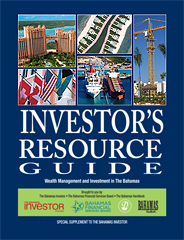|
Published: Date: Updated: |
Investor Resources January 16, 2013 January 16, 2013 |
The Executive Entity (EE) is a legal entity registered under the Executive Entities Act, 2011 to perform executive functions–these are powers and duties of an executive administrative, supervisory, fiduciary and office holding nature. The EE institutionalizes the governance of wealth structures and other entities in an entity with limited liability that is specifically designed for this purpose. The EE therefore is an ideal solution in the matter of identifying a protector or enforcer of a trust or a director or shareholder of a private trust company.
Highlights and requirements
Charter
- There is no requirement that the charter be filed or registered in a public registry.
- The charter must contain the name
- of the founder and other pertinent information such as the purpose of the EE and mechanisms for appointing and removing officers and/or council members.
- The charter may provide for the reservation of rights to the founder and may specify higher or lower levels of exonerations and indemnifications than contained in the Act.
Agent, officers & council members
An Executive Entity agent must be appointed which is either licensed under the Financial and Corporate Service Providers Act, or a trust company under the Banks and Trust Companies Regulation Act.
The charter must provide for the appointment of an officer or a council. It may provide for the appointment of both officers and a council. The officers are charged with administering the EE in furtherance of its purpose and in accordance with the charter, articles and Act.
The council, if appointed, is charged with generally supervising the administration of the EE and ensuring compliance by the EE and the officers with the provisions of the Act.
Registration
- An EE is established by a charter which is signed by the founder of the EE.
- The EE attains the status of a legal entity upon registration.
- To register an EE, submit the required fee along with a statutory declaration of compliance and statement signed by the EE agent or an attorney engaged in the formation of the EE containing the following:
- the date of the charter and the date of any amendments made to the charter
- the purpose of the EE
- a statement that the EE is an Executive Entity
- the date of the articles (if any) and the date of any amendments made to the articles (if any)
- the name and address of the EE agent
- the period for which the EE is established–definite or indefinite
- other particulars the agent or attorney may wish to include
- certificate of registration will be issued by the Registrar General with the name of the EE and the date of registration.
Distinguishing features of an EE
- Flexible capital structure. There is no specific minimum capital that an EE is required to maintain; it must, however, maintain assets necessary to carry out its executive functions.
- An EE may hold shares, securities or other ownership interests in a legal person whose business is to carry out executive functions.
- The executive functions of an EE may be performed only in relation to entities, trusts or other arrangements that are domiciled in or regulated by the laws of The Bahamas or a jurisdiction specified in the first schedule to the Financial Transactions Reporting Act.
- The Act contains similar anti-forced heirship provisions as are contained in the Trustee Act and Foundations Act.
Fees
• Registration fee $550 (prorated)
• Annual fee $500 (late fees apply)
See EE regulations for a complete listing of fees.









